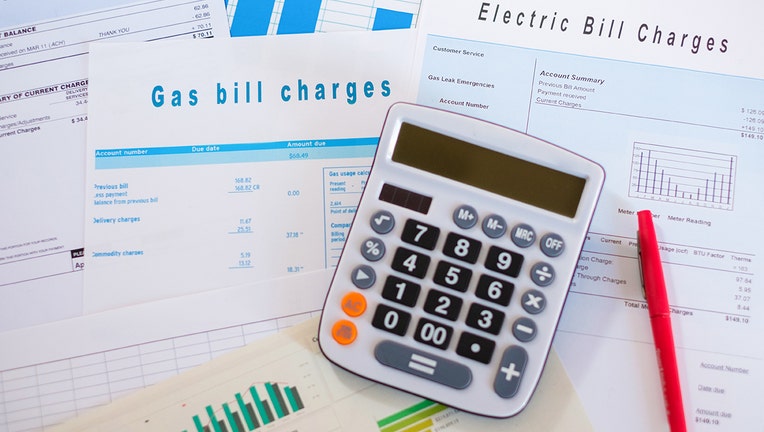How to know if your home is too expensive

Housing makes up the largest chunk of many people’s budgets, but can quickly become unaffordable. We’ve rounded up expert tips for how to tell if your home is too expensive. (iStock)
For most people, housing makes up the largest chunk of their monthly budget. And buying a home is often the largest purchase people will make. Unfortunately, it’s far too easy to get in over your head. Expensive houses and real estate can adversely affect your monthly income and you may not be able to afford other essentials.
When you head to the bank, your mortgage lender will approve you for a mortgage based on how much they reasonably believe you can pay. The problem is that your lender doesn’t know the ins and outs of your budget — only you do. As a result, homeownership can quickly become too expensive.
We’ve rounded up some of the best tips from experts to determine if your home is too expensive. If you read the article and all the signs indicate you can’t afford your current mortgage payment, visit Credible to get in touch with experienced loan officers and find out if refinancing might be right for you.
7 THINGS TO DO WHEN YOU FIND A HOUSE YOU WANT TO BUY
1. Your monthly payment is more than 30% of your income
One of the biggest issues people run into with home affordability is that their monthly payment is too large a percentage of their income. Experts generally recommend keeping your housing payment below 30% of your gross income.
It’s also important to remember that your housing payment doesn’t just include your mortgage payment. Use the PITI acronym — principal, interest, taxes, and insurance.
"If it’s more than a third of your income, then it’s too expensive," said Brian Meigs, founder of the personal finance site Smarts. "Talk to your mortgage lender to refinance your mortgage for a longer term to reduce the monthly payments."
An online marketplace like Credible can help you shop around for refinance rates and find a monthly payment that fits within your budget.
4 THINGS TO KNOW BEFORE REFINANCING YOUR MORTGAGE
2. You don’t have an emergency fund
As a homeowner, you can expect maintenance issues to arise. It’s not a matter of if — it’s a matter of when. Home equity is great but if you don't have saving accounts to offset any emergencies, you could have a problem.
"If you own a home and your toilet breaks, water pipe bursts, or other home emergency happens, you have to pay to get it fixed," said Lauren Bringle, Accredited Financial Counselor with Self Financial. "If you can't afford home maintenance or a repair in case of emergency, consider saving more money before buying."
The general rule of thumb is that you should save at least 1% of your home’s value every year for maintenance. If you can’t manage that, it could be a sign your home is too expensive.
7 CLEVER WAYS TO SAVE MONEY AS A HOMEOWNER
3. You’re struggling to pay your other bills
Unfortunately, new homeowners are often surprised by just how expensive homeownership can be. As a result, they end up having to cut other things from their budget. And if they aren’t cut, they often end up going on a credit card, where debt continues to build. This is a sign that your home is too expensive. If your mortgage payment means you can't make other monthly payments, like your credit card, student loans or car insurance, your house is likely too pricey.
"When you're creating your budget, make sure it isn't going to be a strain to pay your other bills," said Matt Sherman, a financial analyst at Merchant Maverick. "While it's never a bad idea to see how you can cut back on things to save money each month, your mortgage payment shouldn't force your hand to cut corners."
If you’re still shopping for your home and haven’t bought it yet, Credible’s mortgage payment calculator can help you figure out how much your mortgage payment will be and how that will fit into the rest of your budget.
SHOULD I PAY OFF DEBT BEFORE BUYING A HOUSE?
4. You can’t save money
Your house is likely too expensive if your monthly payment prevents you from being able to save for other future expenses. Saving early is critical to being able to retire comfortably. And other financial goals like vacations can have a positive impact on your quality of life. In theory, you should be able to make your mortgage payment on time each month without hurting your ability to contribute toward your retirement and other long-term and short-term saving goals. If you can't, your house cost may be the reason why.
5 WAYS TO IMPROVE YOUR FINANCES BEFORE BUYING A HOUSE
What to do if you can’t afford your home
If any of these signs sound like your situation, it’s probably time to consider a solution. Refinancing your mortgage can help to lower your monthly payment. First, you can extend the life of your loan, meaning you’re on the hook for less each month. But you can also reduce your interest rate. Refinance rates are currently near record lows and, if you're able to afford the closing costs, now may be a time a great time to act.
To understand just how much you could save on monthly mortgage payments by refinancing now, crunch the numbers and compare rates using Credible’s free online tool.
MILLENNIALS ARE HURRYING TO REFINANCE THEIR MORTGAGES — HERE’S WHY
Have a finance-related question, but don't know who to ask? Email The Credible Money Expert at moneyexpert@credible.com and your question might be answered by Credible in our Money Expert column.

